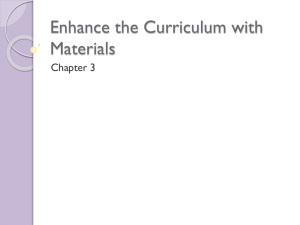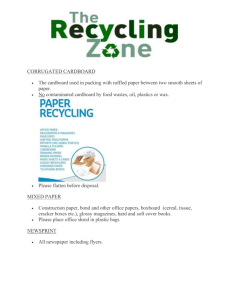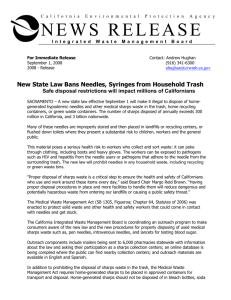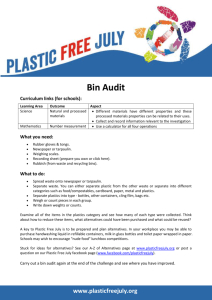14. Waste disposal - information
advertisement
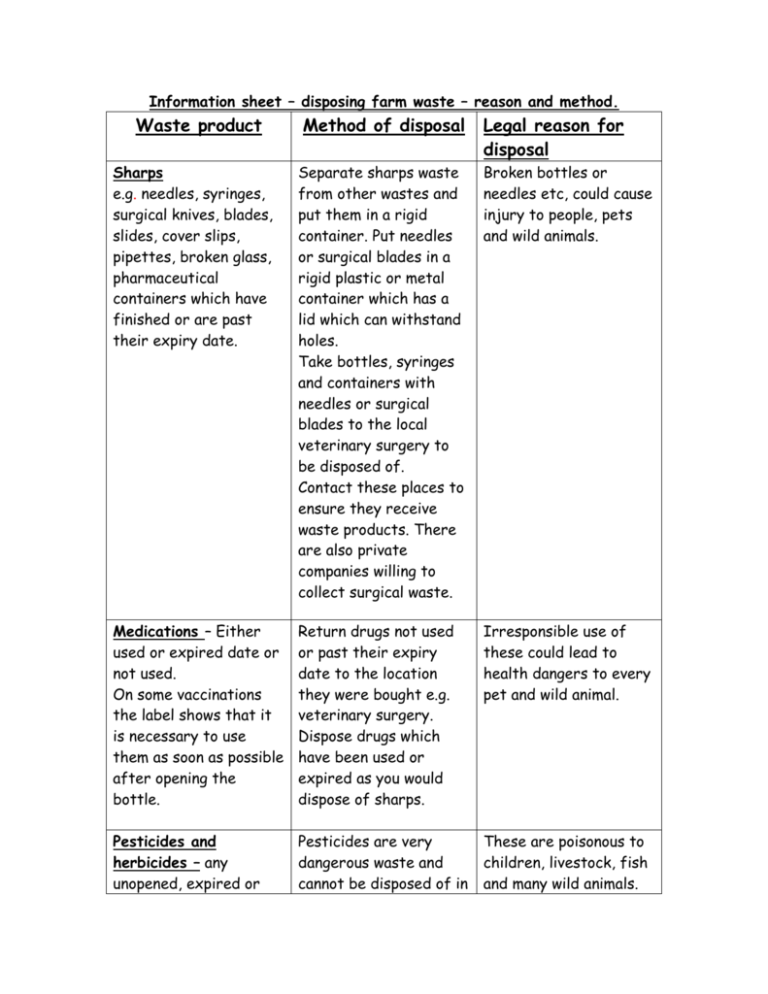
Information sheet – disposing farm waste – reason and method. Waste product Method of disposal Legal reason for disposal Sharps e.g. needles, syringes, surgical knives, blades, slides, cover slips, pipettes, broken glass, pharmaceutical containers which have finished or are past their expiry date. Separate sharps waste from other wastes and put them in a rigid container. Put needles or surgical blades in a rigid plastic or metal container which has a lid which can withstand holes. Take bottles, syringes and containers with needles or surgical blades to the local veterinary surgery to be disposed of. Contact these places to ensure they receive waste products. There are also private companies willing to collect surgical waste. Broken bottles or needles etc, could cause injury to people, pets and wild animals. Medications – Either used or expired date or not used. On some vaccinations the label shows that it is necessary to use them as soon as possible after opening the bottle. Return drugs not used or past their expiry date to the location they were bought e.g. veterinary surgery. Dispose drugs which have been used or expired as you would dispose of sharps. Irresponsible use of these could lead to health dangers to every pet and wild animal. Pesticides and herbicides – any unopened, expired or Pesticides are very dangerous waste and cannot be disposed of in These are poisonous to children, livestock, fish and many wild animals. surplus pesticide or herbicide. landfills nor through burning. Offer any spare goods to your neighbour. Use a licensed company which deals with disposing pesticide waste. You can return unopened pesticide containers. Polluting water etc. must be avoided. Pesticides and herbicides containers Herbicide containers must be clean (having been washed 3 times) and then dried before being disposed of. On no account should they be re-used. You can avoid re-using by making a hole in them. They are a risk to people, livestock and the environment. Packing material paper, cardboard, etc. You can contact the local authority and/or waste disposal companies in order to recycle. You can take them to a landfill site. No legal reason except preventing waste spreading all over the farm; look untidy. Lubricants – oil, fuel, Most companies selling fuels will take them; also waste disposal contractors. It is advisable to keep water and contaminants from this waste. You could use old oil on iron work to prevent rust. Soil and river contamination etc. Dangerous for children if left around the farm. Tyres and batteries Contact the local authority or a waste disposal company; you Acid from the batteries poisonous to people and animals; tyres could be oil filter, oil containers, solvent, cleaning liquid and glycol. Engine oil, transmission fluid, hydraulic fluid, power steering fluid. could re-use tyres e.g. on silage clamp or return them to companies selling tyres. dangerous if they have been stacked around the farm. Plastics – sheets, wrapping material, packing material Contact the local authority or a waste disposal company. They can also be recycled with a specialist plastics company. To prevent plastics spreading around the farm. Farms need to show that they are recycling plastics. Animals etc. could get tangled in the plastics. Building materials – rubble, bricks, blocks, sand, concrete Re-use on the farm to create roads/ hard surface, or other building work. Minimize untidiness on the farm. They can be dangerous to people and animals (heavy weight and sharp). Metal – engine parts, fencing wire, staples, construction framework Contact local contractor Sharp objects can be or take it to a licensed dangerous; an old metal site saw could be dangerous for children. Dead animals – these could be young animals (e.g. lambs), diseased animals or old animals They must be collected by a contractor / licensed company, hunt kennel owner, incinerator either by private arrangement or as a member of the National Fallen Stock Scheme. To prevent the spread of diseases among people and animals: unpleasant odours.
